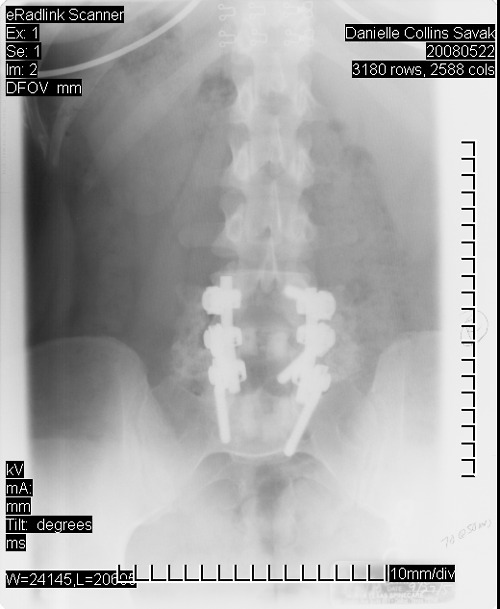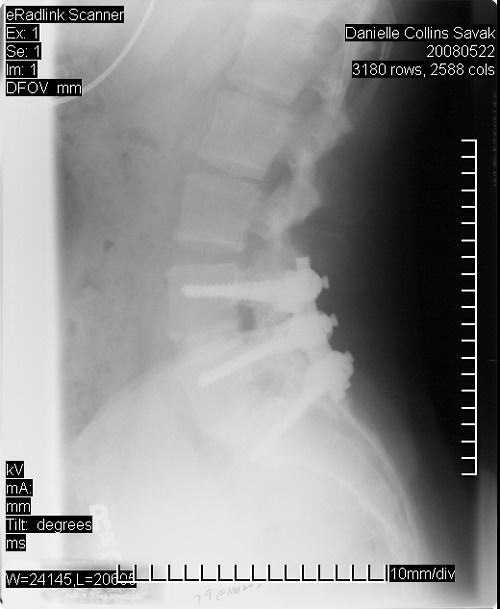When Joe and I argue, it's pretty benign. We know plenty of couples for whom that is not the case; couples whose little tiffs end in a dozen stitches, a trip to IKEA to buy new glassware, or fresh sheets on the guest bed. We are not that couple. Our arguments usually end in paying the babysitter (we prefer to argue on date nights), a goodnight smooch, and happily sleeping a couple of feet apart.
That's because we actually like to argue. We're like a high school debate team that never got over it. Unfortunately, we agree on just about everything, so unless one of us is willing to switch sides for the sake of a verbal spar, we're fairly limited on debate topics. As a result, we have a few pet topics that we revisit every few months.
So since this is my blog and I can't help but win, I will share one of my favorites:
Joe thinks he and I are soulmates. I disagree.
Before you decide I am frigid and soulless and unworthy of Joe's affection, let me clarify. It's not that I don't think Joe and I are suited for one another. It's that I don't believe in soulmates at all. I do believe in love, obviously. I love my husband. But my understanding of why I love my husband is much different than Joe's explanation of why he loves me.
I love Joe for several reasons. In the beginning, it was because he was cute and funny and sincere. I got a little chemical boost from my limbic system, too: my brain got a hefty dose of seratonin, dopamine, and norepinephrine when we were together. As we spent more time together and my affection for him grew, it threw in some vasopressin and oxytocin (the "cuddle chemical"). But beyond all the hormones and boring science-y stuff, there is one key ingredient that turned a biological high into a lasting bond: I chose Joe.
Because I made that choice, we have spent six years making a life together. In six years, we've experienced a lot together - good things, bad things, funny things, angry things, painful things, giggly things. And every time we experience one of those things together, my love for him grows. Because I believe that a loving, lasting relationship is built on a foundation of all the things you experience together. Our first year of marriage was the hardest. We're both a little stubborn, and we were working on that foundation. Looking back, surviving those tough times together is a large part of what strengthened our bond. Either of us could have walked away during that tough time, but we didn't. Me, because I had made a choice. Joe, because he believed we were fated to be together.
There is a certain wistful romance to Joe's viewpoint. I like fairy tales, too. But in my mind, to say you are fated to be with someone is not much different than saying you're sentenced to be with them. Like it or not, you're stuck. The universe won't have it any other way. That means when the tough times come, you don't get the bolstering satisfaction of knowing you could walk out, even if you wouldn't. Sure, the good times are probably just as sweet for thinking the universe had them pre-scripted. But here's the clincher for me: If you believe that you are destined to be with someone no matter what, then you don't get to take any of the credit for the work you put into the relationship.
And it is work. It's not easy to share your life with someone. To learn the other person's quirks and habits, and figure out how to shape your own around theirs so that everyone ends up happy. It's hard to carry the weight of someone else's dreams and fears in addition to your own. But for me, true romance is in succeeding in this task. The notion of pre-destiny or fate ruins the romance for me.
And if Joe wants to say any differently, he can get his own damn blog.
And because every argument makes more sense when it's jazz-backed and sung by a foul-mouthed Aussie, enjoy:
Sunday, July 24, 2011
Friday, July 15, 2011
Mama Bear Sees Red
You should meet my son, Mikey. He's two and a half. Somehow, about a year ago, Mikey did something amazing: he stopped being a vaguely humanish being with all the burden of a rowdy puppy and started being a real person. Much to my delight, it turns out he's a genuinely cool person. He's clever, confident, sensitive, and creative with a sharp wit and a hard head. (I realize that all parents think these things about their kids, but a lot of them are wrong. I'm not.)
Mikey has always had a rich imagination. Perhaps it's a hallmark of an only child, or maybe it's just Mikey, but he's perfectly happy to play by himself. As his vocabulary increases, Joe and I have become privy to the worlds being constructed in our boy's mind. They are vivid and exciting and silly, comprised of all the miscellaneous bits of information that enter his understanding each day. For me, it's a joy and a privilege to join Mikey in imaginaryland for a few hours each day.
About a month ago, I left town for a few days. The boys celebrated my absence with pizza, beer (for Joe), and a DVD set of the Superman movies. By the time I returned, Superman had Mikey's imagination in a ferocious grip. Mikey insists on being called Superman. If he had his way (he often doesn't) he would wear his Superman shirt and cape every day. He carries his new Superman doll, calls his play tent the Fortress of Solitude, and asks to watch Superman at every opportunity. He has memorized lines from the movies (current favorites: "That's my beat, Chief!" and "Bye bye, baby!") and runs through the house pretending to push down walls and rescue people from the crashed helicopter.
Joe and I haven't seen any reason to stop this behavior. It's harmless, creative fun. He wants to be called Superman? Fine, we'll call him Superman. Wants us to tie a blanket around his shoulders cape-style? Groovy. And last Sunday, when he decided that Joe and I would henceforth be known as Batman and Wonder Woman... well, I've always wanted that invisible jet.
It's just a phase, right?
Mikey attends a private Montessori school, where he has thrived since day one. Today, the lead guide in his school pulled Joe aside for a chat when he arrived to pick up our son. On his way home, Joe called me to share. Audibly shaken, Joe described how the (well-meaning, I'm sure) guide told him she believes Mikey may be showing signs of an identity disorder and that this Superman fixation must be stopped, lest it result in permanent damage to his identity. She asked if there has been some major change or event in our home that may have resulted in Mikey's identity confusion. Basically, she scared the shit out of him by convincing him that our preschooler has had some sort of psychotic break.
Through the red haze of my anger, I think I understand what's at the crux of this. Mikey asks people to call him Superman, and twenty other kids get jealous and decide they want to be superheroes, too. I completely understand how that would be disruptive to the school, and I would have no problem at all with her asking us to keep the Superman game at home. But I am livid at the mere suggestion that this fantasy behavior indicates some sort of urgent psychological crisis. I can't help but think that it would be far more damaging to a creative child to tell him to stop imagining, stop pretending.
So now I'm asking. Parents? Teachers? Opinionated people? Am I overreacting here, or did this guide step over the line?
Thursday, July 14, 2011
Yes, it hurts. What else?
I’ve been thinking a lot lately about pain. Not the mystical, sweeping pain of the misunderstood emo generation, but chronic physical pain.
A recent conversation with an acquaintance has haunted me for several days. This woman has a 17-year-old daughter with lupus. While this is a horrible situation that cannot be fully understood by anyone who isn’t living it, I am always saddened to see how this diagnosis permeates every moment of their lives. This child feels well, her labs are all within normal limits, and she wants to get out and experience some things. Unfortunately, her mom has convinced her that anything short of sitting in a darkened room will be the genesis of her untimely demise.
I’m certainly not arguing that she shouldn’t be cognizant of her condition and make some changes to her life. But I believe wholeheartedly that to give oneself fully to a diagnosis, to the exclusion of any other interests, is a greater death sentence.
This might seem arrogant coming from me, an apparently healthy woman, so let me clarify my position. I was born with spondylolysis, a spinal defect that often leads (and in my case, led) to a painful condition called isthmic spondylolisthesis beginning in childhood. I didn’t find out about this defect until I was 20, because when you have pain every minute of your life, you don’t know any different.
 After a few years of nightmarish surgeries, here’s my robo-spine. I’m sorry I can’t offer you any of the classically compelling 20-year-old-on-a-walker pics, because I enforced a strict no-cameras policy during that period of my life.
After a few years of nightmarish surgeries, here’s my robo-spine. I’m sorry I can’t offer you any of the classically compelling 20-year-old-on-a-walker pics, because I enforced a strict no-cameras policy during that period of my life.
Suffice it to say, I know pain. I have known it for all my three decades, and I will know it for every minute of the rest of my life. I have lived the reality of having pain be your last fading thought as you drift off to sleep, and the first thing to penetrate your consciousness when you wake up.
 It would be very, very easy for me to give in to the pain. To sit down, draw a disability check, take some medication to ease my awareness of the hurt, and devote my grey matter to a constant awareness of it. Every time I sit in my spine surgeon’s waiting room, I am surrounded by folks who have gone that route. (If there is a new receptionist, they usually look past me to find the patient when I sign in. I guess there aren’t many people in my condition striding up to the desk in pretty shoes and smiling a hello.)
It would be very, very easy for me to give in to the pain. To sit down, draw a disability check, take some medication to ease my awareness of the hurt, and devote my grey matter to a constant awareness of it. Every time I sit in my spine surgeon’s waiting room, I am surrounded by folks who have gone that route. (If there is a new receptionist, they usually look past me to find the patient when I sign in. I guess there aren’t many people in my condition striding up to the desk in pretty shoes and smiling a hello.)
Obviously, I didn’t choose that path. And that is the point of this post: that people have a choice. Your body may not work like everyone else’s does; you may have to deal with pain or limitations that others don’t. But you can still choose to move beyond your diagnosis and live - truly live - your life.
How? Well, I’m no expert, but here’s what works for me:
1. Understand what “chronic pain” means. Our bodies have evolved into this amazing feedback system as a means of protection. Pain exists as a warning - “that hurts, you should stop doing it.” That’s why we pull our hand out of the fire, immediately relax the strained muscle, or stop running when our bodies have reached their limit. Pain is your brain’s text message to the body to change your situation immediately to avoid further injury. Chronic pain, however, has no purpose. It’s the body’s broken RSS feed that keeps posting the same junk over and over again, no matter how many times you try to unsubscribe. That means chronic pain requires no response from you. Nothing you do is going to change the pain, and you are not in any imminent danger of further injury, so in this case the pain is simply something to be felt.
2. Recognize that all pain is not bad. There is pain with injury, with deterioration, with inflammation. But there is also pain with growth and strengthening. Get past the fear of sensation that paralyzes us into inactivity.
 3. Find your strengths (I promise you still have some) and play to them. You may have physical strengths that allow you, with awareness and sensitivity to your limitations, to perform physical feats you never thought possible. Exhibit A: this photo of me with my best friend, Tricia, after completing my first triathlon. This is nine years after my most recent spinal surgery.
3. Find your strengths (I promise you still have some) and play to them. You may have physical strengths that allow you, with awareness and sensitivity to your limitations, to perform physical feats you never thought possible. Exhibit A: this photo of me with my best friend, Tricia, after completing my first triathlon. This is nine years after my most recent spinal surgery.
4. Make a choice. There are days when I would prefer to sink into a funk, when it just seems too hard to see the good stuff waiting outside the fog of pain. But then I remember: I’ve made the choice to be more than my pain. That choice has allowed me to achieve things I never thought possible and to live the life I want to live, not just the one I was stuck with. So even on the bad days, I continue to make the choice. And at the end of the day, I’m always glad I did.
Chronic pain is a relentless instructor who molds and morphs your body and mind into something you don’t even recognize. The onus is on you, the sole inhabitant of your body, to take what’s left and make it your own. You can make it something you like, or something you despise; something you celebrate, or something you fear; your vessel for navigating this world, or your prison.
I don’t understand why, but in this instance the easy choice always seems to be the more difficult one to make.
Subscribe to:
Posts (Atom)